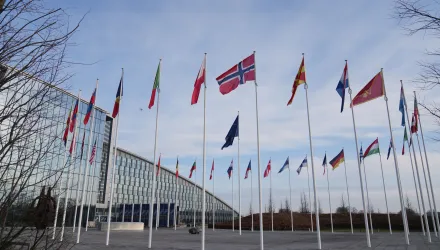Inheriting the Bomb: Soviet Collapse and Nuclear Disarmament of Ukraine, Belarus, and Kazakhstan
The disintegration of the Soviet Union in 1991 left the world's largest nuclear arsenal of some 29,000 nuclear weapons, under the sovereign power of four new states: the Russian Federation, Belarus, Ukraine, and Kazakhstan. While Russia succeeded the Soviet Union as a recognized nuclear power, the status of nuclear weapons in the three non-Russian states was more ambiguous. Whose weapons were they, what claims could these new states convincingly and legitimately make in relation to the nuclear weapons on their territory, and who would carry out Soviet Union’s arms control obligations under START I and NPT? The presentation explores how the deliberations and decisions made during and immediately after the Soviet collapse framed much of the ensuring negotiations over the fate of Soviet nuclear legacy, leading, in the end, to the denuclearization of Ukraine, Belarus, and Kazakhstan.


